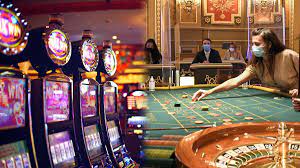Casinos have long been intertwined with human culture, petirtoto offering a unique blend of entertainment, risk, and social interaction. From their ancient origins to the modern mega-resorts of today, the evolution of casinos reveals a fascinating journey marked by technological innovation, regulatory changes, and shifts in societal attitudes.
Origins and Early History
The concept of gambling dates back to ancient civilizations, with evidence suggesting that early forms of games of chance were prevalent in cultures such as the Chinese, Egyptians, and Romans. The word “casino” itself originates from the Italian word “casa,” meaning “house,” and was used to describe a small villa or social club. The modern casino, however, has its roots in 17th century Europe, particularly in Italy.
The first official casino, the Casino di Venezia, was established in Venice in 1638. It was a gaming house designed to provide a controlled environment for gambling, a concept that would slowly spread across Europe. By the 18th century, casinos had gained popularity in France, with the establishment of the Casino de Spa in Belgium and the Casino de Monte-Carlo in Monaco, which played a significant role in shaping the casino industry.
The Rise of Las Vegas
The 20th century saw a major transformation in the casino industry with the rise of Las Vegas. Initially known for its mob connections and illegal gambling operations, Las Vegas began to reinvent itself in the 1940s and 1950s. Key figures such as Bugsy Siegel and later, corporate investors, played crucial roles in establishing a more glamorous and legitimate casino industry in the city.
The opening of the Flamingo Hotel and Casino in 1946 marked the beginning of Las Vegas’s transformation into a global gambling hub. Over the decades, the city evolved into a major tourist destination with colossal resorts and casinos like Caesars Palace, The Bellagio, and The Venetian, offering not just gambling but also world-class entertainment, dining, and luxury accommodations.
Technological Innovations
The casino industry has embraced technological advancements, enhancing the gaming experience and increasing operational efficiency. The introduction of slot machines revolutionized gambling, offering a more accessible and less skill-dependent form of gaming compared to traditional table games.
In recent years, online casinos and mobile gaming have reshaped the landscape, making gambling accessible from virtually anywhere. Innovations such as live dealer games, virtual reality casinos, and blockchain technology are continually evolving the industry, providing players with immersive and secure experiences.
The Role of Regulation
As casinos became more prominent, the need for regulation became increasingly apparent. Governments around the world have implemented various laws and regulations to ensure fair play, prevent fraud, and address social concerns related to gambling addiction.
In the United States, the Gaming Control Act of 1988 established the National Indian Gaming Commission to oversee gaming on Native American lands. Other jurisdictions, such as the United Kingdom and Australia, have developed comprehensive regulatory frameworks to manage the industry and protect consumers.
Societal Impact and Future Trends
Casinos have a complex impact on society. On one hand, they contribute significantly to local economies through job creation, tourism, and tax revenue. On the other hand, concerns about gambling addiction and its social consequences are important considerations for regulators and operators alike.
Looking ahead, the future of casinos will likely be shaped by continued technological advancements, evolving consumer preferences, and regulatory developments. The integration of artificial intelligence, further expansion of online gaming, and a growing emphasis on responsible gambling are expected to influence the industry’s trajectory.
Conclusion
Casinos have come a long way from their humble beginnings to becoming a global phenomenon. Their evolution reflects broader trends in technology, regulation, and societal attitudes. As the industry continues to adapt and innovate, casinos will remain a captivating and influential aspect of modern entertainment and culture.





